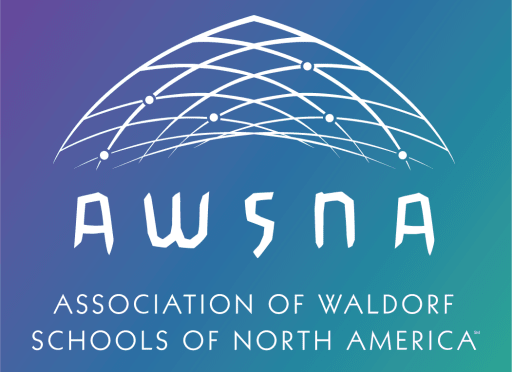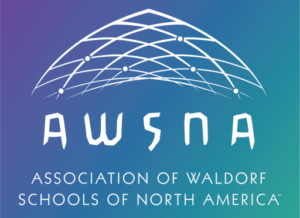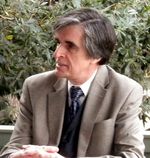
Instead, “media” is listed in the OED as a biological term denoting the middle membrane of an artery, while in phonetics it refers to a soft mute sound, such as in the consonants “b”, “g”, or “d”. The third definition is simply as the plural of the noun “medium”. On this view, iron bars or pools of water or even table tappers could be described as being “media” for sounds, waves, or disembodied spirits.
Today “media” is such common (and sometimes abused) currency that we all know––or think we know––what we mean by it. In this issue of Center & Periphery (the quarterly “electronic media” newsletter published by the Center for Anthroposophy), we explore different aspects of what by now we call “the media”, especially in their relationship to technology as vehicles or platforms for education.
Other topics in this issue embrace the multi-layered meanings of “media” as they relate to transitions, transformations, developmental stages, financial assistance, or simply the experience––so common among Waldorf teachers––of getting ready to jump into a new course or an unexpected task in medias res.
Douglas Gerwin, Director
Center for Anthroposophy
In this Issue
Dateline Amherst, MA: When Is Technology a Tool? When a Crutch?
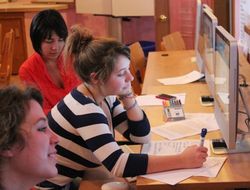
During the course of history, advances in technology have typically been accompanied by stern warnings about their false promises and dangers to our physical or mental health. Listen only to the words of Thamus, legendary king of Thebes, who according to Socrates had this to say to the divine Theuth when the Egyptian god presented the king with a new technology for recording events and memories called “writing”:
“If men learn this,” exclaimed the king, “it will impart forgetfulness in their souls; they will cease to exercise memory because they rely on that which is written, calling things to remembrance no longer from within themselves, but by means of external marks. What you have discovered is a recipe not for memory, but for reminder.”

Similar outcries during the Renaissance were launched against the printing press, and in more recent times we have heard laments about the corrosive effects on our language of the tape recorder, the typewriter, the word processor, spell check, and now e-mail and Twitter and AAA –– the Age of Acronyms and Abbreviations. A modern-day Cassandra might well tweet, “OMG. How un42n8!”
Thamus’ words of caution did not prevent writing from becoming an increasingly widespread tool, first among priests and scholars and by now in the pudgy hands of every eager first grader. No elementary school teacher would wish it otherwise.
And yet there is prescience in Thamus’ warning. Our powers of memory today, it would seem, are no match for those of the Ancient Greek bards, who we are told could recite Homer’s epic poems by heart, hours at a time. And I hear high school teachers say they can tell by its tone and fluency whether a student’s essay was hand-written or composed on a keyboard.
Do I wish to imply that we should roll back the teaching of writing or extend this month’s “Screen-Free Week” to all electronic communication? No. (How, after all, could I expect you to be reading this article, if I did?) Rather, my point is to suggest that Socrates’ cautionary tale hints at an aspect of technology we may be prone to overlook.
As the root meanings of the word suggest, technology [Gr. techne, “tool” and “way, means”] implies something about instruments, on the one hand, and something about ways to use them, on the other. Now, before you can make use of a tool, you need first to develop a measure of skill to carry out on your own the physical or mental deed that the tool is intended to make easier. Don’t give toddlers a hammer, for example, until they have mastered some level of skill at hitting things accurately. Keep calculators away from children until they have acquired some proficiency in arithmetic operations. In the first case, youngsters need to build up physical muscle before a hammer can serve as a useful (rather than as a recklessly destructive) tool; in the second case, children need to build up “spiritual muscle”––say, through mental math––before a calculator can function as a useful aid to intellectual operations rather than as a substitute for them.
Herein lies the key: give a child a tool early on in life, and it will supplant the very skill it was intended to supplement. In other words, tools become prosthetics, or crutches, if introduced too soon. Their use also tends to become addictive.
The same case can be made about any piece of technology, to the degree that it enhances a human skill or way of doing something. Electronic media are no exception. The fundamental questions remain the same:
- Which human skill are these electronic “tools” designed to assist or even mimic?
- At which age will children have developed these skills sufficiently so that these “tools” can serve rather than subvert them?
Let’s take television, perhaps one of the more controversial examples. Television mimics the human ability to create pictures. According to Rudolf Steiner, children learn to think by inwardly creating mental pictures and mental images. If pictures are outwardly supplied ready made, they rob the child of the opportunity to build the “imaginative muscle” needed to become independent thinkers. Since the ability to think unfolds gradually, the age at which children can benefit from television, rather than become slaves to it, will vary. A general guideline, though, will be: the later, the better, recognizing that we cannot shut off our children from all exposure to these kinds of tool.
Indeed, Rudolf Steiner cautions against banning tools of technology outright. In a lecture given shortly after the outbreak of World War I [“Technology and Art”, Dornach 28 December 1914], he declared: “It would be the worst possible mistake to say that we should resist what technology has brought into modern life, that we should protect ourselves . . . by cutting ourselves off from modern life. In a certain sense this would be spiritual cowardice.” [emphasis added]
Instead, Steiner goes on to say, the more we expose ourselves to technology (rather than flee from it), the more we need to strengthen in ourselves––for instance, through the arts–– precisely those human capacities that technology mimics or supplements.
In our present time, attention is turning to the appropriate use of computers in schools. Paradoxically, we read about kindergarten teachers who are encouraging the use of computers and tweeting in pre-school while some university professors are banning them outright from their lectures and seminars. In this hotly contested field of enquiry, the same questions suggested above can be posed:
- Which human skills does the computer mimic or supplement?
- At which age will children have developed these skills sufficiently so that the computer can assist rather than hijack them?
How would you answer these two questions? I would welcome your thoughts on these questions as well as the reasons and observations standing behind them. Please address your comments to me at douglasgerwin@earthlink.net. Your responses––along with mine––will appear in a future issue of Center & Periphery.
In the meantime, I invite you to take up the challenge, to whichever degree you can, of a “Screen-Free Week”. Find out details of this annual celebration at www.screenfree.org.
Dateline Keene, NH: A Challenging New Documentary Film on Rudolf Steiner

For years the acclaimed BBC film-maker Jonathan Stedall longed to make a full-length film about the life and work of Rudolf Steiner. Last year he traveled the world filming scenes and interviewing people who have taken up Steiner’s work in professions as diverse as farming and bee-keeping, medicine and art therapy, dance and theater, banking and social reform, curative care and, of course, Waldorf education.
The result is The Challenge of Rudolf Steiner, a documentary exploring Steiner’s many contributions to science, art, and religion. With a running time of nearly four hours, the two-part film spans the globe from a poignant opening scene on a bustling city scene in India to farmlands in Africa and herb gardens in America. Along the way Stedall interviews artists, scientists, philosophers, physicians, business professionals, and educators who have taken up the work of anthroposophy. Among these is an interview which Stedall conducted on the campus of Antioch University New England in Keene NH with Torin Finser, chairman of the education department at Antioch and a founder of the Center for Anthroposophy.
During his 27 years with the BBC, Stedall has made over 150 documentaries, including film portraits and interviews with Laurens van der Post, Alan Bennett, Mark Tully, Malcolm Muggeridge, E.F. Schumacher, Cecil Collins, Bernard Lovell, Ben Okri, and Theodore Roszak. In 1969 he won a British Film Academy Award for his film In Need of Special Care, a portrait of Camphill School in Scotland; since then he has made further films about Camphill’s work for children and adults with special needs.
Other notable productions include biographies of Tolstoy, Gandhi, and Jung, as well as three films for the 1976 BBC series The Long Search filmed in Romania, Taiwan, and California.
Stedall’s quasi-autobiography, Where on Earth is Heaven?, was published by Hawthorn Press in 2009. For details of this book, visit his website: www.jonathanstedall.co.uk
For a preview trailer of his documentary on Rudolf Steiner, click here.
Dateline Sacramento, CA: Gestures of Embryological Stages III
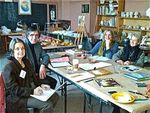
It all began a decade ago at the 2002 Kolisko Conference of Waldorf teachers, doctors, and therapists in Lahti, Finland. During a noisy coffee break in the crowded foyer of the newly opened congress hall, a brief conversation took place between two presenters at the conference: Douglas Gerwin, Director of the Center for Anthroposophy and high school teacher of embryology, and Michaela Gloeckler, head of the medical section at the Goetheanum in Dornach, Switzerland. In that fleeting yet spirited encounter was born the idea of a research project to create an English-language source book on sexual education in Waldorf schools spanning grades 4-12.
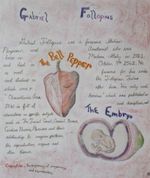
This year, Douglas and Frances will be exploring these formative gestures further during the 2012 teachers conference at the Sacramento Waldorf School. Conference participants can register for this course online at the AWSNA website: www.whywaldorfworks.org
Dateline Wilton, NH: A New Round of Renewal

You may already have seen a listing of courses to be offered this summer in Wilton, New Hampshire, on the beautiful campus of High Mowing School, where we have convened our Renewal Courses for the last 13 years. What you will not have experienced, unless you’ve been a participant, is how just five days in the company of a stellar faculty and a profound group of people can change some fundamental aspects of your life. In less than two months’ time, we will reconvene after a year of hard work and heavy responsibilities, our old hearts ready for Renewal!
Week I: June 24th to June 29th
Dr. Broder von Laue will offer a brand-new course on the challenge of cancer and how it brings us to a threshold whether we are doctors, therapists, caregivers, present or past sufferers. Dr. von Laue will explore new perspectives into supporting the self-healing forces within us, while Rev. Julia Polter will lead daily sessions on the soul landscapes offered in the healings in the Gospels.
For the first time ever we’ll have the renowned Eleanor Winship teaching her celebrated music course, which combines philosophical and practical content to bring both depth and new capacities to teachers and parents alike.
Christof Wiechert returns this year with a focus on case studies in the art of child study –– including examples brought by participants as well as cases of his own. The spiritual foundations of pedagogy and the many challenges related to teaching children in our classrooms will be approached from a practical point of view. Christof, who has traveled the world leading workshops on this practical art, will also offer an evening lecture to all participants and community members.
We are grateful that Christopher Bamford will be with us again this year with a course that opens the doors to a wider perspective on current Jewish, Christian, and Muslim approaches to life each stemming from “The Mystical Heart of Abraham”. Christopher will bring a new vision of the evolution of consciousness and help us see the meaning of religion––as well as art and science––in a transformed way.
Lorey Johnson and Kati Manning are back with a living focus on teaching world languages in grades 1, 2, and 3 grounded in “doing”. Each summer these devoted teachers bring language teaching in any tongue to a new joy-filled level, while remaining rooted in practical lessons.
Week I instructors also includes Eugene Schwartz, Iris Sullivan, Marianne Dietzel, Leonore Russell and Carla Comey, and Jennifer Crebbin.
Week II: July 1st – July 6th
Gunther Hauk joins us for the first time this year with his legendary course on the plight of bees. Beekeepers, both aspiring and experienced, have a lot to look forward to! His course explores new ways of caring for beehives out of a deeper understanding and love for the bees and for all of Mother Nature.
Aonghus Gordon is back one more time with his salt-of-the-earth craftsmen! This is their third of three installments, bringing a much needed approach to healing with crafts through rhythm and transformation by working consciously with the four kingdoms of nature. There are no words to describe the faces of the participants coming in for coffee after working in the woods creating three-legged stools from trees cut down right then and there! Fiber art is back with braiding and wall hangings; new this year are courses on balm-making and mask-making. All the classes can be adapted to the grades, high school, or to special education classes.
Regina Kurek and Linda Larson are offering their rich and hands-on approach to understanding biography. There will be beautiful life charting that focuses on the sun karma in our lives and on that golden thread that invisibly accompanies us. Eurythmy will enlighten much of the work, along with color and clay. Participants receive special recognition if they take this course for three successive summers.
Faust is with us this year in the form of a production presented by Glen Williamson on the 3rd of July to complement a new course offered by Frederick Amrine’s on “Encountering Evil at the Threshold”. Frederick, a popular college professor and world-traveled scholar, will also offer an evening lecture.
Week II instructors returning this summer also include Dennis Klocek, Laurie Clark and Rena Osmer, Torin Finser, Jamie York, Iris Sullivan and Karine Munk Finser, and Signe Motter, Douglas Gerwin, and Hugh Renwick.
We are lucky indeed to have Juliane Weeks, Elizabeth Auer, and Cezary Ciaglo as supportive faculty. For a full list of course offerings, please click here.
Dateline Wilton, NH: Stepping into High Gear
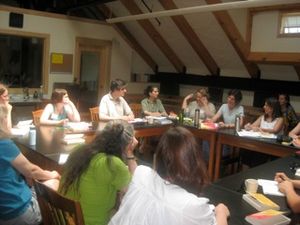
The next round of our three-summers program starts in July 2012 on the campus of High Mowing School, a Waldorf school in Wilton, New Hampshire. As in previous years, we will be offering specialization in:
- Arts/Art History –– with Patrick Stolfo
- Biology and Earth Science –– with Michael Holdrege
- English & Foreign Languages –– with David Sloan
- History and Social Science –– with Meg Gorman
- Mathematics and Computer Studies –– with Jamie York
- Physics and Chemistry –– with Michael D’Aleo
The schedule is arranged in such a way that students can specialize in either one or two of these areas.
The program, begun in 1996, also features hands-on seminars in “Living Thinking” with Michael D’Aleo, “Human Development and Waldorf High School Curriculum” with Douglas Gerwin, and “Professional Research” with Michael Holdrege, as well as workshops in drama (David Sloan), eurythmy (Laura Radefeld), music (Carol Kelly), sculpture (Patrick Stolfo), and speech (Daniel Stokes).
In addition to these three summer intensives, students undertake two years of independent studies including a research project and internship. At present over 70 graduates from this program are working in 32 Waldorf schools across North America.
Details of our forthcoming summer program––starting on Sunday 1 July and running until Saturday 28 July––can be viewed on our newly revamped website: www.centerforanthroposophy.org
Dateline Pasadena, CA: Waldorf High Schools in Transition
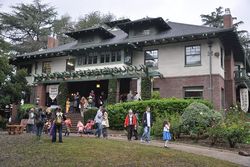
From its earliest beginnings in the 1940s, the number of Waldorf high schools in North America has grown ever more rapidly in each decade, starting with one (High Mowing) in 1942, followed by two in the 1950s, three more in the 1960s, another three in the 1970s, and four more in the 1980s. Then came a growth spurt of over a dozen new Waldorf high schools––some of them free standing, others arising from an established lower school––all starting up in the 1990s, followed by a similar number of new high schools in the first decade of this century.
For the past five years, however (since 2007), the total has hovered at a ceiling of around 40, because several young high schools have closed their doors even as others were opening theirs. In the coming year that ceiling, it seems, will be extended again.
On one hand, two Waldorf high schools have announced they are closing at the end of this school year. The Aurora Waldorf School, which launched a small ninth grade in the fall of 2010, will not continue its lead class beyond the sophomore year, though alternative ways of offering the Waldorf curriculum for these students are being considered. In addition, the Waldorf School of Baltimore will close its high school after graduating its second senior class in June. In both schools, low enrollment prompted the decision to discontinue the high school program.
On the other hand, two California Waldorf schools will unveil new high schools next year. In the southern portion of the state, the Pasadena Waldorf School is steaming ahead with plans to open a ninth grade with about a dozen students in September. Betty Staley from Rudolf Steiner College and Douglas Gerwin from the Center for Anthroposophy have been acting as advisors to this fledgling initiative. To the north, in the Bay Area, an independent ninth grade venture will be inaugurated on the campus of the Marin Waldorf School, led by Waldorf elementary and high school teachers.
With these two new initiatives, the projected number of Waldorf high schools in the U.S. and Canada will remain at 40 for the next school year. In addition, several initiatives to bring the Waldorf high school curriculum into the public sector are underway in California and the Southwest.
While it is too early to say how enrollment in these schools looks for next year, initial reports from a sampling of Waldorf admissions officers across the continent suggest that the number of teenagers attending Waldorf high schools is expected to hold steady in 2012-13 at around 2,000 matriculated students.
Dateline Freeport, ME: Building on Firm Foundations
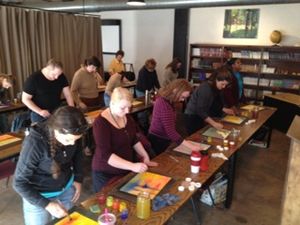
Three clusters of Foundation Studies in Anthroposophy and the Arts are hosting graduations this spring, with participants receiving Certificates at Linden Waldorf School in Nashville, TN; Merriconeag Waldorf School in Freeport, ME; and Waldorf School of Lexington in MA. We congratulate all of those committed and hard-working participants, many of whom are going on to further training programs. We wish them all well!
Programs preparing for Year Two of Foundation Studies, starting in the fall of 2012, include Atlanta, GA; Chapel Hill, NC; Hadley, MA; Quechee, VT; and St. Louis, MO. Readers familiar with anthroposophy who have studied the material covered in Year One––How to Know Higher Worlds, Theosophy, and Anthroposophy in Everyday Life, all by Rudolf Steiner––and who would like to join Year Two in one of these clusters should contact me at brichardson@centerforanthroposophy.org.
Second-year programs typically begin with studies in biography work, then delve more deeply into the wide variety of work developed by Rudolf Steiner. Study themes in the latter part of the second year are shaped according to the interests of the participants in each cluster. In that sense, each group is unique.
Participants interested in joining a new cluster are invited to Information Sessions coming up in the following places:
Friday 4 May
Waldorf School in Lexington, Lexington, MA
Information Session starting at 7:00p.m.
(In conjunction with screening of the new film, The Challenge of Rudolf Steiner, by the British film-maker Jonathan Stedall previewed in this newsletter.)
Monday 21 May
Meadowbrook Waldorf School, RI
Information Session starting at 7:00p.m.
New clusters are also forming in Wilton, NH and at Washington Waldorf School in Bethesda, MD. Contact me for details.
Finally, we received this note from Mary Beth Mueller, a participant in the cluster held at the Emerson Waldorf School who is about to graduate with her colleagues in Chapel Hill after two years of study:
I can’t believe “biographies” are over. I feel so blessed to have heard everyone’s stories and also to have been heard in such a loving and open way. I didn’t really understand before we started how surrounded I was by such a gathering of bright and beautiful souls who have each endured hardships and triumphs. It seems that, everywhere we go, each and every person we meet must also be a bright and beautiful soul with a unique and intricate story just waiting to unfold like a flower. The world now seems warmer and more alive both to my head and to my heart for knowing this secret!
Dateline Atlanta, GA: Retrospect and Prospect on a Cluster in Foundation Studies
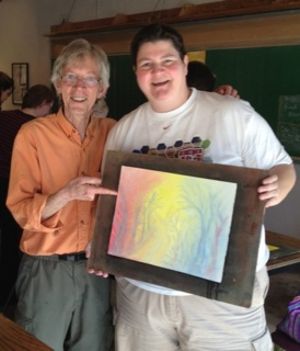
The 20 students in our Atlanta Foundation Studies cluster have just wrapped up our winter block on the study of Rudolf Steiner’s Theosophy, led by Jim McClurkin. For four Saturday sessions, we read together, engaged in small group discussions, and reviewed the themes of the book as a whole group; in each session Mr. McClurkin brought us new artistic exercises to experience. We practiced form drawing, geometric drawing, perspective drawing, and watercolor painting. We used tools and materials that some had not used before and we all felt the awakening that playing with form, line, and color can bring to our senses. Our discussions were lively and I think everyone appreciated Mr. McClurkin’s expansive knowledge in anthroposophy and his willingness to be open and patient with us. Thank you, Mr. McClurkin!
We are looking forward to our spring session led by Eleanor Winship. She will lead us through Anthroposophy in Everyday Life, four lectures by Rudolf Steiner. And if you know Ms. Winship, then you know we will be singing!
If you have been wondering what it is all about, thinking about joining, or just waiting for the right time, please join us to hear about the program and ask questions. It is a really rewarding way to spend a few hours a month –– talking with a cool group of adults, reading stimulating books, practicing new arts, eating great food, and strengthening our community. It’s an investment in self-development that leads to an increased awareness and new appreciation for the quality of daily life. I encourage you contact me with any questions or to be added to our mailing list.
Angela Foster at: afoster@thirdbody.net
Dateline Wilton, NH: “When Sound Becomes Song” Reaches Final Crescendo

Under the banner “When Sound Becomes Song”, the Center for Anthroposophy launched its annual appeal around the time of the fall equinox to raise funds for teacher training scholarships. Using as its symbol a pair of carved musicians playing an ancient two-man organistrum, the appeal made the case that through collaboration we are able to create something that no one person can achieve alone.
As we pass through the spring equinox and into the final months of this school year, the annual appeal has reached just beyond 95% of its goal of $40,000. Among contributors to this year’s fund, fully a third so far are first-time participants, and over half of repeat donors have increased their gift over last year.
With just three months to go, we are optimistic about reaching and even surpassing our goal. Please join the final crescendo of this campaign by donating to the CfA annual fund via this secure link.
Thank you.
Dateline Wilton, NH: Springing Off the Shelves of the Color Shop & More

Winter speeds by faster if you can curl up with a good book –– either for yourself or to share with children. With an eye on spring and summer, the Color Shop & More has filled its shelves with a new line of beautifully illustrated children’s books, along with an array of flying machines, origami sets, puzzles, and kits for all ages.
For adults, the store has acquired a new selection of recently published books on Waldorf education and anthroposophy, including texts used in the Center’s foundation studies and teacher education programs.
The store has also restocked its arts supplies with new materials including a new line of high-quality paint brushes.
Hours for the store are Tuesday-Friday from 11:00 a.m. to around 5:00 p.m. and Saturday from 10:00 a.m. to 4:30 p.m. For placing orders, contact the staff at (603) 654-6297 or via e-mail at info@colorshopandmore.com.

